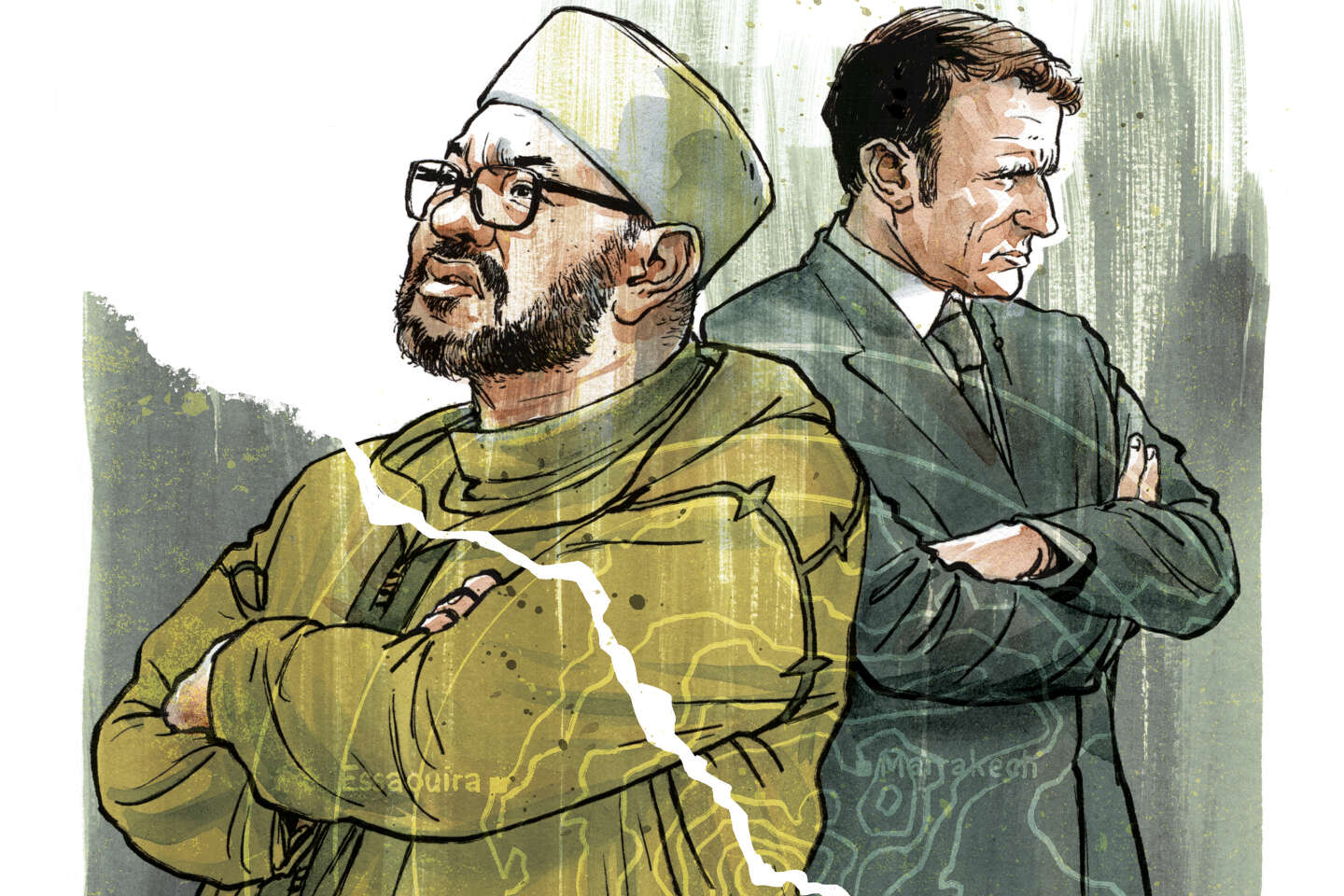[ad_1]
The past two years of increased waning affection between France and Morocco has to come to an end. It is now time for anxious questioning, both in Rabat and in France. How can the escalation of animosity between the two capitals, once united in “exceptional partnership,” a model of post-colonial collusion, be halted? Each time there’s a glimmer of respite, acrimony flares up once again. The terrible human toll – around 3,000 dead and 5,600 injured – of the earthquake that struck the High Atlas mountains on September 8 should, in all logic, have calmed tempers. The opposite has happened: the rift between the two countries has only deepened. After the wave of anti-French sentiment in West Africa, will Morocco be the next domino to fall?
“Why King Mohammed VI irritates the French state so much,” was the headline on September 20 in the online newspaper Le360 – which has close ties with the Elysée – in an attack against the French media’s coverage of the earthquake, which it deemed “hysterical” and which, in its view, could only have been engineered from the Moroccan palace. France, both the authorities and the media, is said to be seeking revenge on the kingdom for its “independence from the former colonial power,” and in particular for its “sovereign” decision to accept offers of assistance from only four countries – Spain, the United Kingdom, Qatar and the United Arab Emirates – while ignoring Paris.
In Morocco, certain televised debates that were aired in Paris with bizarre titles – “Can Morocco cope without French assistance?” – were certainly shocking. The regime’s propaganda did not shy away from using these paternalistic overtones to disqualify the entire French press. It described it as a hostile unit (“a mob,” which was “insulting” the Moroccan monarchy) because it was apparently asking too many questions about the delays in rescue operations on September 9, as well as about Mohammed VI’s reaction. Furthermore, when French President Emmanuel Macron expressed the desire for “divisive controversies to be silenced,” he unwillingly only intensified the dispute. His clumsy video message, addressed “directly to Moroccan men and women” – with Arabic subtitles – was seen as a breach of protocol “defying the king,” the kingdom’s media criticized.
Who could have imagined that a natural disaster could slide into such bitterness? Did the Franco-Moroccan relationship really need to become so heated? Is its two-way ground such a minefield that each official gesture or press article – the object of suspicious, or even paranoid, interpretation in Rabat – sparks a new cycle of controversy as if in a downward spiral? So what had happened between the two capitals to cause the famous Le360, an outlet linked to Mounir Majidi – the King’s private secretary – to radicalize its personal attacks on Macron on September 21, in the form of an article entitled “Part man, part woman but he admits nothing: Who is Emmanuel Macron really?” and filled with allusions to an alleged homosexuality?
You have 79.83% of this article left to read. The rest is for subscribers only.
[ad_2]
Source link
